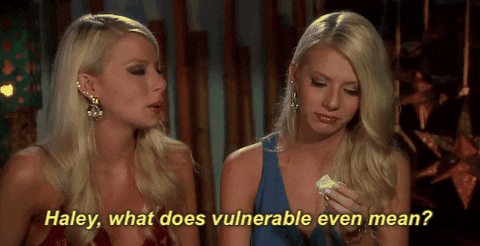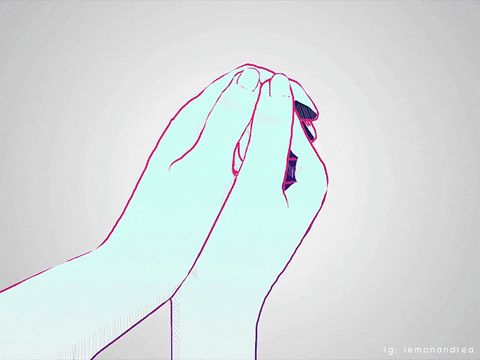Your VIP - your Vulnerability, Intimacy, Privacy
How do we build proper boundaries around ourselves in order to give and receive generously, sustainably?
By cultivating your own VIP status, noting areas of Vulnerability, Intimacy, and Privacy. Understanding the dynamics in each, and in the relationships between, these three will keep you operating within healthy, grounded openness.
Our capacity for cooperation and communication have lifted humans to the top of a perceived hierarchy within the animal kingdom. These superpowers we have as a species derive from our empathic abilities. Dr. Brené Brown says, “vulnerability is not winning or losing; it's having the courage to show up and be seen when we have no control over the outcome. Vulnerability is not weakness; it's our greatest measure of courage.” Through her research, and particularly through her talk at TED in 2010, Brown has made vulnerability a buzz word and popular topic of discussion in industries from mental health and personal development all the way to business technology around the globe.
“It seeks no profit from the information or experience shared at the expense of the dignity and respect of another.”
Vulnerability, Brown shares, is honest and compassionate empathy. It creates a space inside oneself that accesses the pain and suffering of another without the pervasive and toxic addiction to blame, diminish, or reject. It recognizes ownership and responsibility without judgment or condemnation of oneself or the other. Their behavior, perhaps, but not the person. It seeks no profit from the information or experience shared at the expense of the dignity and respect of another.
It’s great to listen to leaders speak about inspiring ideas.
And. But. Yet.
How do we actually practice vulnerability in a healthy way? How do we get it? Where does it come from?
We are all looking for ways to enrich our lives, to extend their lengths, and—at the core of coeurs—satisfy our deep need to matter, to contribute, to belong. How do we cultivate—while growing into and through—our vulnerability?
Energy is everything. And everything is energy. Though many say it is time, it is actually our attention that is our most precious resource. This is why we pay attention.
Consider the idea of social currency through structures such as social media, even in everyday conversations, and most obvious in politics (aka popularity contests) within a corporation, community, even within a family. Our words, our ideas, our stories are currency.
Our environments have a significant impact on our psyche, and without doing deep inner work of self-reflection, our intentions may skew toward what is most popular, in-demand by the powers-that-be outside oneself. Vulnerability comes through this inner work of self-reflection, and through the ability to appropriately share with another with the intention to benefit all.
“Intimacy is the measure by which we feel seen, heard, and known for who we truly are.”
If vulnerability is developed via our intentional attention, intimacy is developed over time through trust. Intimacy can happen on many levels, in any realm. By realm, I mean to differentiate between mental, emotional, physical and spiritual planes. Regardless, it is the measure by which we feel seen, heard, and known for who we truly are.
As defined on Dictionary.com, intimacy is “close familiarity or friendship; closeness.” Wikipedia adds that “an intimate relationship is an interpersonal relationship that involves physical or emotional intimacy. Although an intimate relationship is commonly a sexual relationship, it may also be a non-sexual relationship involving family, friends, or acquaintances.”
And let us not forget privacy. Crucial to healthy boundaries is privacy: containment of the chaos.
Again, Dr. Brown: “People have to earn the right to hear our stories.”
What about being an open book? What about sharing openly and honestly?
We have to be careful when sharing vulnerable, intimate aspects of our lives. We have to understand our own needs: have they been met? Do we still have some unfinished element that needs tending? What is our need in this moment? Why do we feel compelled to share this story and information with this person?
And beyond needs: are we emotionally stable, or volatile and triggered by stimuli? Can we sail the emotional tumultuous seas with steadfastness, even in storms, to receive another’s experience and perspective with evenness and stability?
Often we use our stories as social currency. We share with the expectation of getting—as in someone’s attention, or I’ll share my story with you just so I can hear yours. What most often happens with fearful, hurting individuals and groups is this information gets stored up and used later as ammunition. Gossip. Pushing someone’s buttons. Toxic patterns emerge, shredding partnerships or creating unhealthy competition within communities, and patterns of co-dependency.
“The advice we most need ourselves is exactly what we are so quick to share.”
The advice we feel compelled to give often comes from our own experience, and we are usually speaking to our former selves. “Be the example you needed when you were younger,” and “write what you needed to hear,” are two examples of how we serve ourselves to heal, and offer this to others in the process. Please do not confuse this with selfishness. Wisdom teaches us that indeed, the advice we most need ourselves is exactly what we are so quick to share. This is a gift from your true self that keeps on giving.
How do we share our process and work and ideal development with others? While also protecting our autonomy?
If you find you’re still seeking outside approval, it might not be the appropriate time and place to share. There is, naturally, a delicate balance to be found here. Rather, seeking to serve something other than oneself—some other purpose, such as growth and connection—provides a subtle nuance to explore in interactions. And is the path to building lasting, fulfilling connections.
Trust the structure. Trust the imperfection of your operation. Trust your commitment to showing up.





What happens if you swap out “I don’t know what I’m doing” with “I don’t ‘no’ what I’m doing”? Reframing limiting self talk into an empowering affirmation.